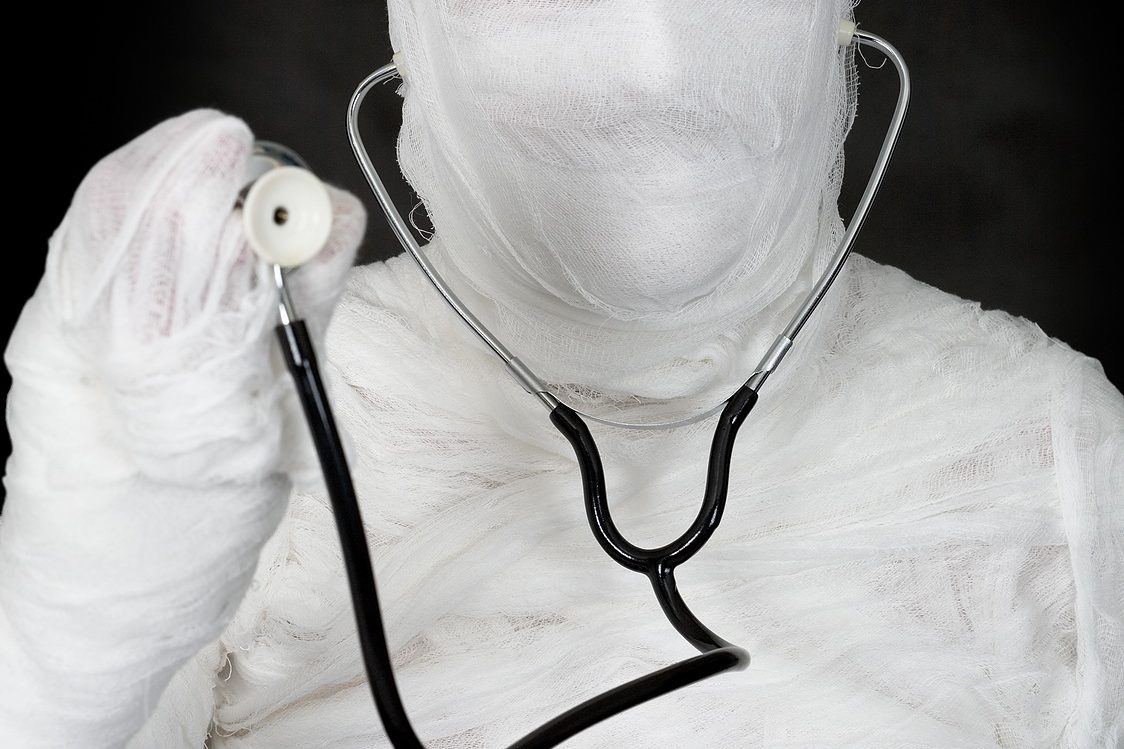I was confused. Perhaps, I needed another cup of coffee. The chart did not make sense. Ellen, who I was about to see because she was transferring her care, was receiving medication for cancer that was a simple pill; inexpensive, with few side effects. What confused me is that it was obvious the therapy would not work.
Baffled, I called the oncologist who had been treating Ellen for two years. A nice guy, we have met causally at meetings. He is well trained, aggressive and compassionate. He knew immediately of the paradox in Ellen’s records; she was receiving a very questionable drug. He explained the problem.
Ellen had refused the correct treatment, chemotherapy, because of side effects. She did not want hair loss, nausea, fatigue or the risk of infection. Ellen was so definite in her opinion, that she had demanded the worthless pill by name. Therefore, because Ellen had practically ordered the therapy, the oncologist had written the prescription.
I have practiced medicine long enough to remember the days of paternal care. Back then, the doctor was not only the one with the degree, he was the boss. The physician said, “jump” and the patient said “how high?” It was our healthcare culture that the doctor had the experience, the judgment, the wisdom. The physician determined the “right” treatment and the patient’s role, the “sick role,” was to comply. The doctors “orders” were, well orders.
In reality this did not work. Patients who do not understand their medical situation, are not invested or committed to their care. They did not take their medicine, show up for therapy or, often, see a doctor at all. The revolutionary shift, buttressed by massive e-data, has been toward patient involvement and responsibility. The concept of “informed consent” is no longer simply on the consent side, but on being informed. Patients demand to understand and are intimately involved in each decision.
However, often I see a further change, an imbalance toward the patient side of the equation, which threatens to undermine sound decisions and good care. I see doctors providing therapy that they think is a bad idea. In effect, I see patients ordering treatment.
We all know of the example of antibiotics prescribed for the common viral cold, because the patient insisted, “something be done.” Chemotherapy given to patients with advanced resistant cancer, even though it will likely shorten life. $50,000 automatic defibulator units implanted in demented 96-year-olds, so that they may die as their bodies are contorted by electric shocks. Distorting plastic surgery addictions fed by lucrative surgical excess-practice. Radiation therapy for radiation resistant illness. Kidney dialysis given to patients in complete, irreversible, liver failure. Dozens of excess consults in the last month of life.
There is a basic idea, which many physicians seem to have forgotten. This concept describes the relationship of patient and doctor, even in the post-paternal era. Doctors order therapy. Patients consent to therapy. Patients cannot order a physician to give therapy.
This is the final check on medical decisions. The physician has the sophisticated understanding of health science, as well as the emotional distance to be objective. The patient understands their own limits and desires, how a specific therapy will affect their lives. To implement decisions properly the physician and patient must communicate clearly and completely; an interchange of ideas. In the final step, the doctor recommends, and the patient consents or refuses. The doctor orders, the patient complies by allowing care.
In Ellen’s case, where we began, the medical relationship has been distorted. The patient is ordering and the doctor complies. The result is bad decisions and worse care. Ellen was getting a medicine, which, though it has few side effects, has no benefit. Therefore there are only side effects; a medicine which can only bring harm.
Even if this particular medicine does not bring Ellen any direct injury, the disruption of the relationship and decision process, is a serious problem. The likelihood of careful analysis and high quality communication is diminished. Ellen has heard the message that she can and, perhaps, must demand the “”right” care. Ellen and her doctor did not understand their roles. The resulting confusion will result in chaos during future health crises, when complex decisions will be needed and emotions will run high.
Doctors must, at certain critical times, “say no.” Clearly part of the wisdom, the art of medical practice, is being able to decline a patient’s requests with skill and compassion. The approach should not include, “No! What a stupid idea!” Rather, it requires a gentle systematic conversation about the realities of the situation and what can or cannot help. This sort of negotiation is central to good medical practice.
However, despite best efforts, there will be moments when each practitioner must draw a hard line in the sand. Giving harmful or useless therapy, or intentionally denying comfort, undermines patient-physician communication. This threatens medical care. This is not just about being a steward of resources, but about building and maintaining a healing relationship.
I said “no,” to Ellen. Actually, we spent an hour discussing her case and choices. I explained that the pill was not going to help; I avoided the label “less than worthless,” though I was tempted. We agreed to explore the idea of chemotherapy at her next visit. It seemed to me that our conversation went well.
Perhaps we have established an understanding on how we will make decisions together. She talks, I listen. I teach, she learns. I advise, she considers and consents… or not. It is a foundation on which to build a cure.







18 Comments